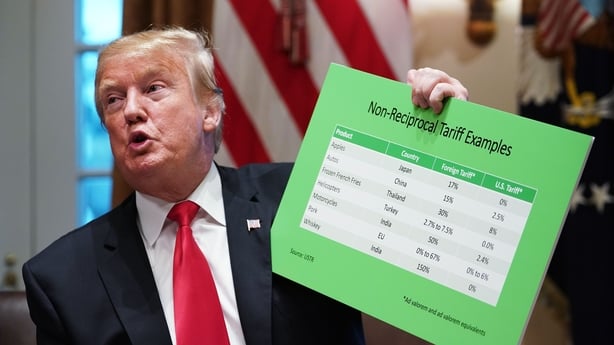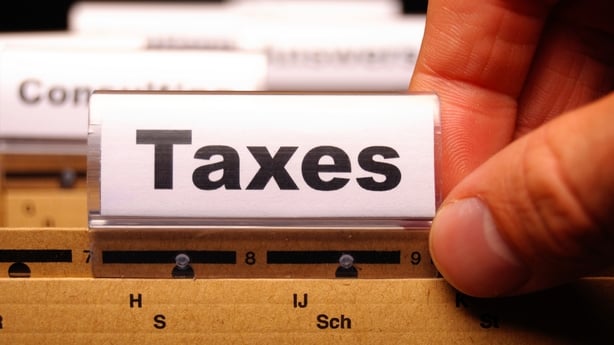The vast majority of us can only dream of being 'a high net worth individual'.
That's the definition of someone who is worth €20 million or more.
Paying a wealth tax probably wouldn't be top of our to-do list.
It is not an issue most of us have to concern ourselves with, but if a wealth tax was ever introduced in Ireland, it could impact 1,350 people here.
Ireland has 1,600 high net worth individuals, according to the latest data for 2024 from the Revenue Commissioners.
Of this group, 250 are non--resident for tax purposes.
The latest Oxfam report showed that the Irish billionaire club rose from nine to 11 last year and their combined wealth increased by more than a third to just over €50 billion.
The report did not reveal who the Irish billionaires are, but many are familiar names while others have Irish citizenship and do not live in Ireland.
It revealed that the wealth of Irish billionaires increased by €13 billion last year, amounting to an increase of €35.6 million per day.
To visualise what over €50 billion looks like, Oxfam said it could carpet the whole of the Phoenix Park in €50 notes almost 1.5 times over.
The charity has urged the Government to tax extreme wealth to pay for public services, and to broaden the tax base.
Jim Clarken, CEO of Oxfam Ireland said, "It's time for governments to stop protecting billionaires and to prioritise investing in people. A fairer, more equal world is essential for a liveable planet, global democracy and the eradication of poverty."

With warnings about the potential economic shocks that US President Donald Trump's trade and tax policies could pose to Ireland, is now the time to consider a wealth tax to bring in more revenue and bolster the countries coffers?
Proponents of a wealth tax say it would broaden and diversify the tax base.
Last year, in its election manifesto, Sinn Féin said it would introduce a tax on individual net wealth in excess of €1 million. The party estimated that a wealth tax would generate €150.8 million.
Opponents say a wealth tax is purely populist, potentially economically damaging and doesn’t raise much.
While not a paltry sum, €150.8 million would not solve wealth inequality in Ireland.
In the UK, the idea of a wealth tax has been considered sporadically, more recently in 2020 by the independent Wealth Tax Commission.
Dan Neidle, the founder of Tax Policy Associates, said at the time that calls for a wealth tax in Britain were not a viable solution.
"Historically, annual wealth taxes have failed in almost every country in which they’ve been tried. They’ve raised derisory amounts and had adverse effects."
He cited Spain as an example which introduced a wealth tax in 2022, and raised €632m, a "truly piddly amount of tax". He said, wealthy people had reacted by leaving Spain or rearranging their business affairs to minimise any tax liability.
While wealth taxes have existed since the 19th century, only a handful of countries have implemented them widely.
In the 1990s, 12 OECD countries had wealth taxes, but only three have retained them: Norway, Spain, and Switzerland.
Ireland has a progressive tax system, one in which the burden of tax increases in line with higher income levels.
Last year, the Department of Finance published a report which showed that Ireland has the most progressive tax system of any advanced economy.
Entitled 'Beyond GDP – Quality of Life Assessment', the report said the taxation and welfare system here does more to reduce income inequality than any other OECD (Organisation for Economic Co-operation and Development) economy.
It also said that the system has become "more progressive over time".

It noted that while market income inequality, which is income before taxes and benefits are applied, is high, it highlighted how this level of inequality is significantly reduced when the tax and welfare system takes effect.
This was a point made by Fine Gael TD Barry Ward On Today with Claire Byrne this week.
"We already impose a significant tax on people on a particular income. We have local property tax, we have inheritance tax, we have high rates of income tax . They do balance out, and they mean that those who earn more, pay more," he said.
He also said such a tax would drive capital and revenue out of the country; "That's the dangerous unintended consequence of a tax like this".
Deputy Ward said the Oxfam report talks about Takers not makers'. "In actual fact, those who have wealth are usually those who are creating wealth within the Irish economy, so we would have to be very careful about safeguarding the economy as well."
Sinn Féin MEP Lynn Boylan said the notion that a tax would drive wealth out of Ireland "is a complete fallacy".
She said a wealth tax is also about the social contract. "That social contract is fraying," she said.
"We don't want to get into a situation like in America where democracy is at threat because of the growing divide of inequality. People need to see that everybody pays their fair share."
Deputy Ward agreed that steps should be taken to eliminate inequality, "but the shared experience of our European colleagues is that it doesn't work".







